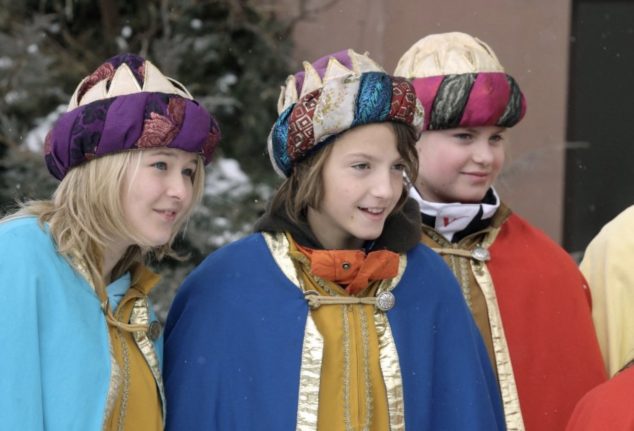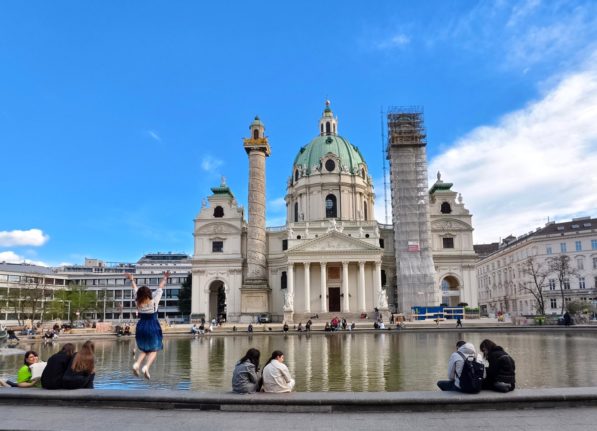In 2023, January 6th falls on a Friday, giving people in Austria their first long weekend of the year.
Like most national holidays, this one also has religious roots – more specifically, Catholic roots. On January 6th, Catholics celebrate the revelation of God incarnate as Jesus Christ, hence the name Epiphany, and a celebration of the “adoration of the Magi” when the three kings visited the newborn Christ.
READ ALSO: EXPLAINED: How to maximise your annual leave in Austria in 2023
In Austria, the holiday is known as Heilige Drei Könige, or three holy kings.
How do Austrians celebrate it?
There are several traditions happening on this date. If you have your Christmas decorations and Christmas tree up, this is usually when people take them down and pack them up for the year.
However, the most common tradition is the Sternsinger (star singers), a group of young people that travel from door to door dressed as kings and singing in four-part harmony. If they knock on your door, they may sing, bless your home – and expect a donation for a cause organised by the churches.
READ ALSO: Austrian traditions: How to celebrate St. Martin’s Day in Austria
If you live in Austria, you’ve probably seen a house or another with chalk marking just above the door. This means that the house was blessed by the Sternsinger, who then marked the year of the blessing and the initials of the three kings – Kaspar, Melchior and Balthazar – over the doorway.
Religious families may also attend a solemn mass at the church and have a big family meal to celebrate the date.
For Orthodox believers, January 6th is also Christmas eve. This is based on the fact that Orthodox Christians use a different calendar.
READ ALSO: Why everything in Austria is closed on Sundays – and what to do instead
As it is a public holiday, most stores and supermarkets will be closed. However, restaurants are still open, and if you find yourself with an empty fridge, convenience stores in petrol stations and supermarkets inside train and metro stations are still allowed to open in Austria, even on public holidays.
When is the next public holiday?
After Friday, people in Austria will have to wait a while for the following public holiday, as there are no official national ones in February or March. However, Easter Monday (again, a Christian celebration) will fall on April 10th.
As this holiday always is celebrated on Mondays in Austria, it will give you another chance to enjoy a long weekend.
READ ALSO: COMPARE: How do Austria’s public holidays stack up against the rest of Europe?



 Please whitelist us to continue reading.
Please whitelist us to continue reading.
Member comments